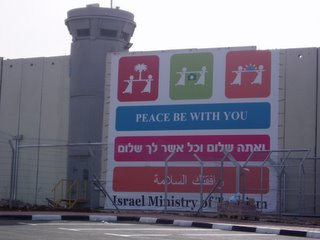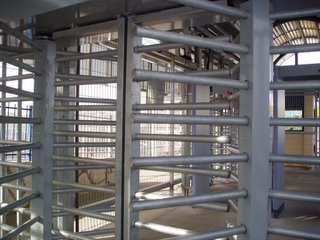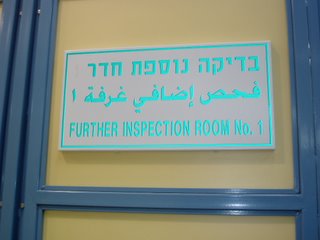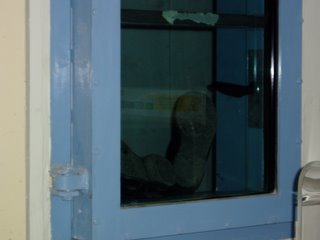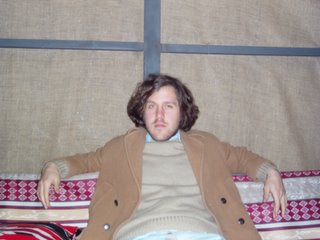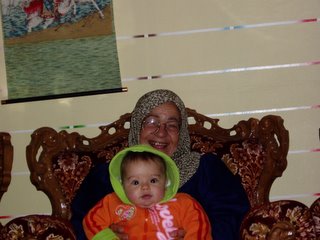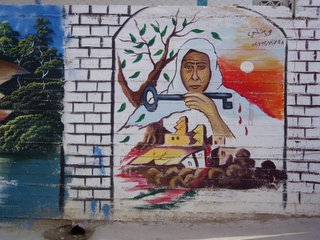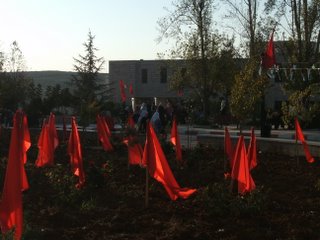More on the New Checkpoints

It's not all in the details
By Amira Hass
Each detail described here, every shred of reality, is liable to be
considered as a whole, which would dim its severity. Detail:
hundreds of people gather each morning at three narrow steel
revolving doors, and the gates do not turn because some unseen
person has blocked them by pushing a button. The number of people
crammed behind them grows and grows, and they wait for an hour, and
the anger at another day being late for work or for school is piled
on top of previous residual tensions brought on by anger, bitterness
and helplessness.
However, it is not the crowdedness and waiting and anger that define
the checkpoints and roadblocks, or in this specific instance, the
new Qalandiyah checkpoint. Nor is it the crowdedness and compressed
atmosphere of the rest of the inspection route, before the
magnometers and the closed rooms in which the soldiers sit and
inspect documents, or the other revolving doors. Or even the
other "details": the cameras that make the soldiers and commanders
seeing and unseen, the snarling voice in the speaker that issues
commands in Hebrew, the terrifying concrete wall above and around,
and the devastation left by Israeli bulldozers and planners outside
the cage that Israel calls a "border terminal," in what was once,
and no longer is, a continuous stretch of residential neighborhoods,
soft hillsides and the Jerusalem-Ramallah road.
Nor are the 11 "detainees" at the inspection route's exit an
adequate detail: nine teenage boys aged 18 and under, one adult, and
a 23-year-old university student, all of whom committed a serious
crime on Monday: After waiting in vain for the steel gates to turn,
which would lead them to the inspection route, on their way to
classes and work, they decided to jump over the fence - one hoping
to get to an English test on time, the other fearful of being fired
if he again arrived late to the printing press where he works. But
they were caught. The student was handcuffed from behind, and was
sat down next to a guard booth in the closed military compound. The
other ten were placed outside the compound, in the mud that became
thicker with every drop of rain. And the soldiers demanded that they
sit down. They could not sit, because of the mud, and only went into
a kneeling position. After half an hour, the bent knees begin to
hurt more and more, and the pants are soaked with water and grow
tight over the knee. The hands turn cold, but the soldiers don't
change their tune: "Sit, I told you. Sit."
But the cold and the rain are not the story, nor is the soldier
eating his combat rations and watching the detainees apathetically,
nor the telephone calls by this writer until after two hours they
are permitted, how compassionately, to stand up, nor their release -
including that of one individual whose frozen hands are imprinted by
deep red cracks from the handcuffs, nor the fact that the 14-year-
old in the group had to wait another 20 minutes after his release
until the soldier who took his birth certificate (after all, he does
not yet have an identity card) could be found. The question of
whether the detention would have continued longer had the writer not
been present is also marginal.
Also of secondary importance is the decision to open
the "humanitarian gate" (which is intended for the passage of those
in wheelchairs, parents with baby strollers, and Palestinian
cleaning workers employed by a contracting firm), in the morning to
women and men above the age of 60. Another detail that in itself
diverts one's attention from what is important.
What is important is that the army and the Israeli citizens who
design all of the details of dispossession - and the roadblocks are
an inseparable part of this dispossession - have transformed the
term "humanitarian" into a despicable lie.
Through the checkpoints, road closures, movement ban, and traffic
restrictions, through the concrete walls and barbed wire fences,
through the land expropriations (solely for the purpose of security,
as the High Court of Justice, which is part and parcel of the
Israeli people, likes to believe), through the disconnecting of
villages from their lands and from a connecting road, through the
construction of a wall in a residential neighborhood and in the
backyards of homes, and through the transformation of the West Bank
into a cluster of "territorial cells," in the military jargon,
between the expanding settlements - we Israelis have created and
continue to create an economic, social, emotional, employment and
environmental crisis on the scale of a never-ending tsunami.
And then we offer a little turnstile in a cage, an officer who is
briefed to see an old man, a bathroom and a water cooler - and this
is described as "humanitarian." In other words, we push an entire
people into impossible situations, blatantly inhumane situations, in
order to steal its land and time and future and freedom of choice,
and then the plantation owner appears and relaxes the iron fist a
bit, and is proud of his sense of compassion.
However, even the important matter - that is, the humanitarian
deception - is only one detail in a full set of details in which no
single detail is representative in itself. Isolated fragments of the
reality are read as being tolerable, or understandable (security,
security), or may make one angry for a moment and then subside. And
among all the details, the reality of colonialism intensifies,
without letup or remission, inventing yet more methods of torture of
the individual and community; creating more ways to violate
international law, robbing land behind the legal camouflage, and
encouraging collaboration out of agreement, neglect or torpor.
http://www.haaretzdaily.com
